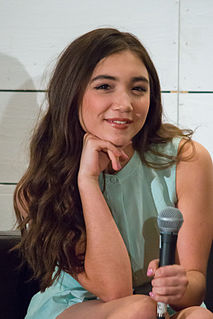A Quote by Sheila Heti
Nonfiction, to me, feels like an argument, whereas a novel is like a series of questions.
Related Quotes
It's very bad to write a novel by act of will. I can do a book of nonfiction work that way - just sign the contract and do the book because, provided the topic has some meaning for me, I know I can do it. But a novel is different. A novel is more like falling in love. You don't say, 'I'm going to fall in love next Tuesday, I'm going to begin my novel.' The novel has to come to you. It has to feel just like love.
I think the term "artist's novel" for me has referred to writing which supports an art practice or a more specifically a particular artwork or project. The nonfiction novellas and nonfiction novel I have written play a role in my artwork as objects - which I will return to, but I write the books to exist autonomously.
There is one particular argument that I call our 'ancient war.' If it could be summed up in one phrase, it would be, 'You don't get it. You don't understand what it's like to be me living with you.' There is such truth in that statement. None of us can really appreciate what it is like to be the other person, what that point of view feels like.
Objectifying your own novel while writing it never really helps. Instead, I guess while you're writing you need to think: This is the novel I want to write. And when you're done you need to think: This is what the novel I wanted to write feels like and reads like and looks like. Other people might call it sweeping or small, but it's the book you chose.
I've been thinking a lot about why it was so important to me to do The Idiot as a novel, and not a memoir. One reason is the great love of novels that I keep droning on about. I've always loved reading novels. I've wanted to write novels since I was little. I started my first novel when I was seven.I don't have the same connection to memoir or nonfiction or essays. Writing nonfiction makes me feel a little bit as if I'm producing a product I don't consume - it's a really alienating feeling.
Nothing is wrong with you. You're not different. Everybody feels as bad as you do: this is just what writing a novel feels like. To write a novel is to come in contact with raw, primal feelings, hopes and longings and psychic wounds, and try to make a big public word-sculpture out of them, and that is a crazy hard thing to do.
The Catcher in the Rye had such a deep impact on me, because it felt like it was just Holden and me. I didn't feel like any other person had read that book. It felt like my secret. Writing that I identify with feels like it's just me and the writer. So I hope that whoever is reading what I do feels like that.






































